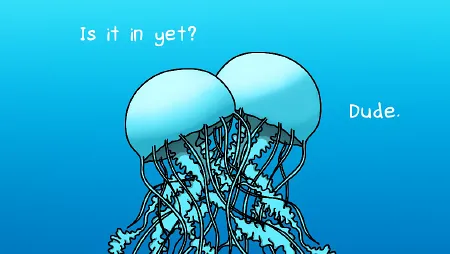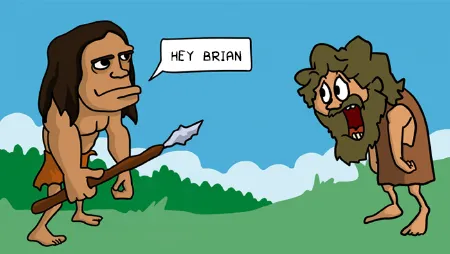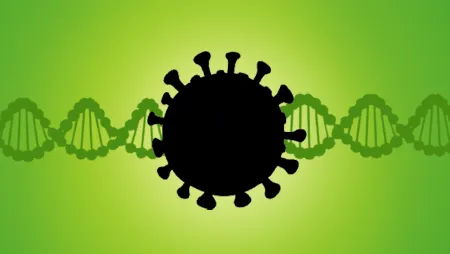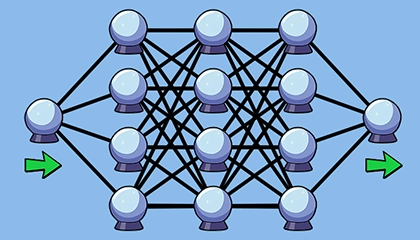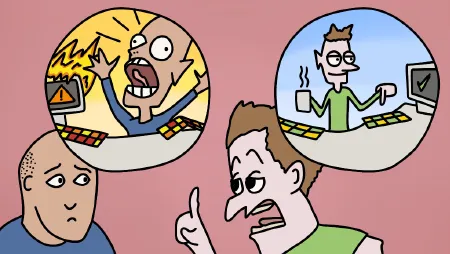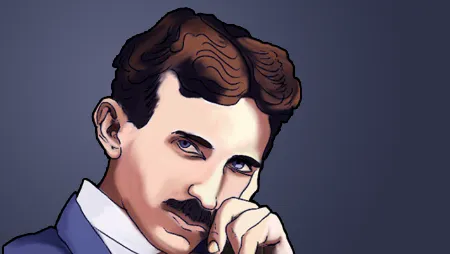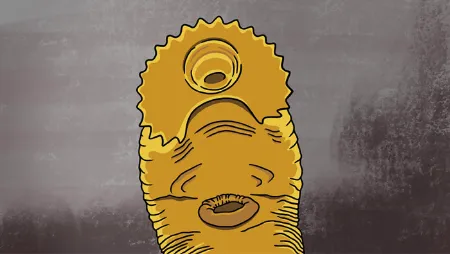Humans love to read. Reading is exactly like getting into another person's brain pool and swimming around in their knowledge. You can stay in there as long as you want, and there is only one rule. DON'T PEE IN THE POOL.
Sometimes I have no idea what I mean. But these authors don't have that problem at all. This is why you shouldn't get all your information from a single source, especially one you just found on the internet, you big weirdo.

A Short History of Nearly Everything
By Bill Bryson
You've got to hand it to Bill Bryson. Having spent decades as a travel writer, he's since become the ultimate condenser of popular science, able to pick out the best of nature's quirks and weave them into the friendliest of narratives. As a result, A Short History of Nearly Everything is the biggest-selling popular science book of the 21st century.
Touching on everything from the Big Bang to the rise of human civilisation, Bryson seeks to understand how we came to exist from a singularity. He attaches himself to archaeologists, anthropologists, mathematicians, and others to apprentice himself to their beautiful scientific minds. Sometimes profound, sometimes funny, and always entertaining, Bryson delivers a trivia-packed adventure though the history of science.
"Not one of your pertinent ancestors was squashed, devoured, drowned, starved, stranded, stuck fast, untimely wounded, or otherwise deflected from its life's quest of delivering a tiny charge of genetic material to the right partner at the right moment in order to perpetuate the only possible sequence of hereditary combinations that could result—eventually, astoundingly, and all too briefly—in you." - Bill Bryson
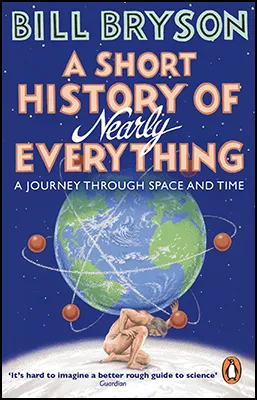
Also by Bill Bryson: The Body Illustrated | The Road to Little Dribbling | A Walk in The Woods | At Home | In a Sunburned Country | One Summer: America, 1927 | Notes from a Small Island | Neither Here nor There | The Mother Tongue | Shakespeare: The World as Stage
A Primate's Memoir
By Robert M Sapolsky
Here's an exhilarating account of Sapolsky's 21-year study of a troop of rambunctious baboons in Kenya. A Primate's Memoir interweaves surprising scientific observations with wry commentary about the challenges and pleasures of living in the wilds of the Serengeti.
Over two decades, Sapolsky survives culinary atrocities, gunpoint encounters, and a kidnapping, while witnessing the encroachment of tourism on the farthest vestiges of unspoiled Africa. As he conducts his research on wild primates, he becomes evermore enamoured of his subjects and returns to them summer after summer until tragedy strikes.
"I had never planned to become a savanna baboon when I grew up; instead, I had always assumed I would become a mountain gorilla." - Robert M Sapolsky
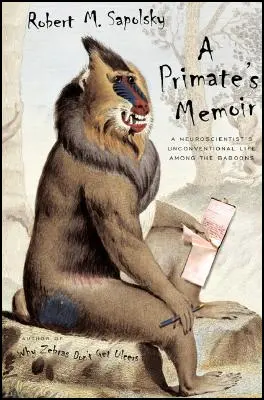
Also by Robert M Sapolsky: Behave: The Biology of Humans at Our Best and Worst | Why Zebras Don't Get Ulcers | The Trouble with Testosterone | Monkeyluv: And Other Lessons in Our Lives as Animals | Determined: Life Without Free Will
The Man Who Mistook His Wife for a Hat
By Oliver Sacks
The Man Who Mistook His Wife for a Hat and Other Clinical Tales features compelling case histories of patients lost in the bizarre, inescapable world of neurological disorders. Oliver Sacks tells the stories of individuals afflicted with fantastic perceptual and intellectual aberrations: patients who have lost their memories and with them the greater part of their pasts; who are no longer able to recognise people and common objects; who are stricken with violent tics and grimaces; whose limbs have become alien; who have been dismissed as retarded yet are gifted with uncanny artistic or mathematical talents.
While inconceivably strange, these tales are deeply human. They're studies of life struggling against incredible adversity, enabling readers to enter the world of the neurologically impaired, to imagine with our hearts what it must be like to live and feel as they do.
"If a man has lost a leg or an eye, he knows he has lost a leg or an eye; but if he has lost a self—himself—he cannot know it, because he is no longer there to know it." - Oliver Sacks
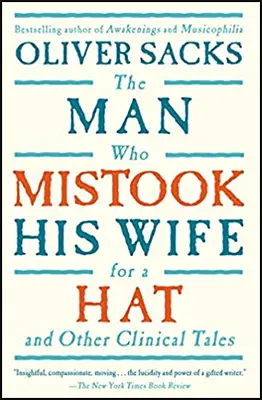
Also by Oliver Sacks: Hallucinations | Awakenings | Musicophilia | The Four Horsemen | An Anthropologist on Mars | The River of Consciousness | Mind's Eye | Gratitude | Uncle Tungsten | On the Move | Everything in Its Place
Sapiens
By Yuval Noah Harari
Authored by a renowned historian, this is a groundbreaking narrative of humanity's creation and evolution. As a result, Sapiens is a part-science and part-history book that explores how each domain has defined us as human beings. Around 100,000 years ago, at least six different species of humans inhabited Earth. Today there is only one—Homo sapiens. What happened to the others? And what may happen to us?
Most books about the history of humanity pursue either a historical or a biological approach, but Harari breaks the mould by beginning 70,000 years ago with the appearance of modern cognition. From examining the role of humans in the global ecosystem, to charting the rise of empires, Sapiens integrates history and science to reconsider accepted narratives and connect the past with contemporary concerns.
"Hunter-gatherers spent their time in more stimulating and varied ways, and were less in danger of starvation and disease. The Agricultural Revolution certainly enlarged the sum total of food at the disposal of humankind, but the extra food did not translate into a better diet or more leisure. Rather, it translated into population explosions and pampered elites. The average farmer worked harder than the average forager, and got a worse diet in return. The Agricultural Revolution was history's biggest fraud." - Yuval Noah Harari
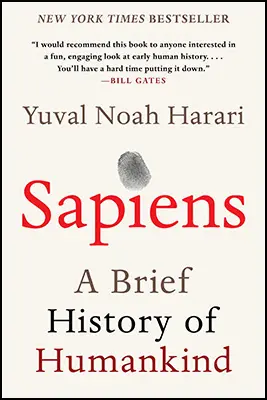
Also by Yuval Noah Harari: Homo Deus | 21 Lessons for the 21st Century | Unstoppable Us
The Selfish Gene
By Richard Dawkins
The Selfish Gene is a classic exposition of evolutionary thought, articulating a gene's-eye-view of evolution. What emerges is a stunning picture of how life is simply a vehicle for these immortal units of information to replicate.
This imaginative and stylistically brilliant work not only brought the insights of Neo-Darwinism to a wide audience, but galvanised the biology community, generating debate and stimulating new areas of research. Forty-five years later, its insights remain as relevant as on the day it was published.
"Individuals are not stable things, they are fleeting. Chromosomes too are shuffled into oblivion, like hands of cards soon after they are dealt. But the cards themselves survive the shuffling. The cards are the genes. The genes are not destroyed by crossing-over, they merely change partners and march on. Of course they march on. That is their business. They are the replicators and we are their survival machines. When we have served our purpose we are cast aside. But genes are denizens of geological time: genes are forever." - Richard Dawkins
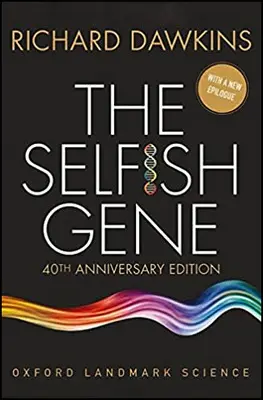
Also by Richard Dawkins: The God Delusion | The Blind Watchmaker | The Magic of Reality | The Greatest Show on Earth | The Ancestor's Tale | An Appetite for Wonder | Unweaving The Rainbow | The Four Horsemen | Science in the Soul
Consciousness: A Very Short Introduction
By Susan Blackmore
How does the brain create our experience of the world? What creates our identity? Could consciousness itself be an illusion? Consciousness is a punchy illustrated guide to the mechanistic quirks of perception, memory, and cognition that synthesise our subjective experiences.
Recent developments in brain science push the debate on the science of consciousness, with the field drawing an increasing number of biologists, neuroscientists, psychologists, and philosophers. Blackmore clarifies the potentially confusing arguments and the major theories, while outlining fascinating new discoveries in neuroscience. With foundational knowledge into the construction of self, mechanisms of attention, the neural correlates of consciousness, and the physiology of altered states of consciousness, Consciousness is is a neat and memorable introduction to the workings of your brain.
"What is it like to be a bat? This curious question looms large in the history of consciousness studies. First asked in the 1950s, it was made famous by the American philosopher Thomas Nagel in 1974. He used the question to challenge materialism, to explore what we mean by consciousness, and to see why it makes the mind-body problem so intractable. What we mean, he said, is subjectivity. If there is something it is like to be the bat—something for the bat itself, then the bat is conscious. If there is nothing it is like to be the bat, then it is not." - Susan Blackmore
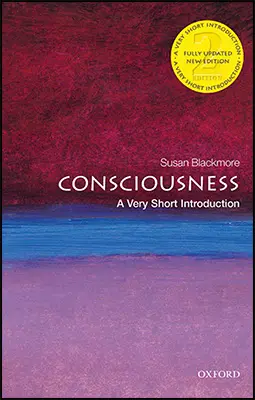
Also by Susan Blackmore: The Meme Machine | Conversations on Consciousness | Zen and the Art of Consciousness | Seeing Myself: The New Science of Out-of-Body Experiences
In the Shadow of Man
By Jane Goodall
In the Shadow of Man is an account by the primatologist and conservationist, Jane Goodall, of her life among the wild chimpanzees of Gombe, making for an enthralling story of animal behaviour. Goodall's adventure began when the famous anthropologist Louis Leakey suggested that a long-term study of chimpanzees in the wild might shed light on the behaviour of our closest living relatives. Accompanied by her mother and her African assistants, Goodall set up camp in the remote Gombe Stream Chimpanzee Reserve in Tanzania.
For months the project seemed hopeless. Out in the forest from dawn until dark, she had only fleeting glimpses of frightened animals. But gradually, she won their trust, to record previously unknown behaviours, such as the use and the making of tools, a skill then thought to be reserved exclusively for humans.
"I became totally absorbed into this forest existence. It was an unparalleled period when aloneness was a way of life; a perfect opportunity, it might seem, for meditating on the meaning of existence and my role in it all. But I was far too busy learning about the chimpanzees' lives to worry about the meaning of my own. I had gone to Gombe to accomplish a specific goal, not to pursue my early preoccupation with philosophy and religion." - Jane Goodall
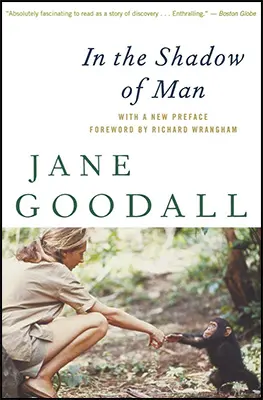
Also by Jane Goodall: The Book of Hope | Through A Window | 50 Years at Gombe | My Life with the Chimpanzees | Seeds of Hope: Wisdom and Wonder from the World of Plants
Virusphere: Why We Need the Viruses That Plague Us
By Frank Ryan
Here's a scary and fun introduction to viruses if you ever need one. Published shortly before the COVID pandemic, Frank Ryan's Virusphere is a book of two halves. At first, we learn about historical and present-day infectious diseases, including horrific descriptions of rabies, polio, Ebola, and Zika. But this book isn't just for those of us with a morbid fascination for disease.
The latter half of Virusphere reveals some shocking modern discoveries about viruses, including how certain species bed down within our DNA as proviruses for the rest of our lives. In some people, the interruption to their genetic source code triggers unchecked cell division—aka cancer. Yet the upside is that, sometimes, these genetic symbionts actually influence our evolution in a positive way by gifting us new genes.
If you only associate viruses with colds, flu, and a spot of the Black Death, think again. Frank Ryan, a doctor obsessed with genetics, viruses, and evolution, wants you to know that viruses are alive. They've been around an awfully long time, perhaps even giving rise to the first cells on Earth, and live among all animals, plants, fungi, protists, bacteria, and archaea as obligate symbionts.
"...in a deliberate act of biological warfare, the Australian authorities infected feral rabbits with a virus with the intention of decimating their numbers throughout the territory... Within three months of the onset of the epidemic, 99.8% of the rabbits of southeast Australia, a land area the size of Western Europe, were exterminated by myxomatosis. The observing scientists were witnessing up close the potential of virus–host evolutionary interaction in the red-in-tooth-and-claw of Darwinian natural selection." - Frank Ryan
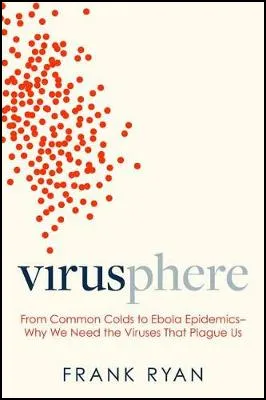
Also by Frank Ryan: The Mysterious World of the Human Genome | Tuberculosis: the Greatest Story Never Told | Virus X | Virolution
The Forever Fix: Gene Therapy and The Boy Who Saved It
By Ricki Lewis
The Forever Fix tells the story of the next frontier in medicine and genetics through the personal lens of the children affected by it. Discover how gene therapy works, how patients have been helped and harmed in clinical trials, and how scientists learned to generate cures that fix diseases at their genetic roots.
Eight-year-old Corey Haas was nearly blind from a hereditary disorder when his sight was restored through a delicate procedure that made medical history. His doctors introduced viruses carrying replacement genes into his eyes. A few days later, Corey could see, his sight restored by gene therapy. This is the story of Corey and many others whose lives have been dramatically altered by the emergence of gene therapy.
"Fledgling medical students learn right away the mantra: when you hear hoofbeats, think horses, not zebras. It means suspect first the most common explanation for a patient's symptoms. Round up the usual suspects. In Corey's case the horses were night blindness and albinism, then retinitis pigmentosa. Medical geneticists, however, deal almost exclusively with zebras, most of which are caused by mutations in single genes." - Ricki Lewis
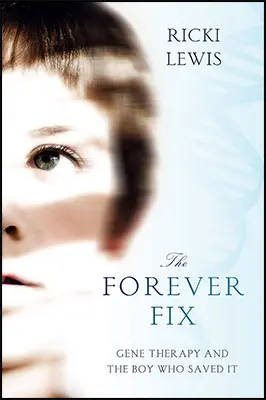
Also by Ricki Lewis: Human Genetics | Stem Cell Symphony
Free Will
By Sam Harris
A belief in free will touches nearly everything we value. It's difficult to think about law, politics, religion, public policy, intimate relationships, morality—as well as feelings of remorse or personal achievement—without first imagining that every person is the true source of their own thoughts and actions. Sam Harris is here to deconstruct that automatic notion with his short book of science and philosophy, Free Will.
Free will is a convincing illusion, harmonising near perfectly with our lived experience. This is why so many of us, including many scientists, accept the idea of free will at face value despite the total lack of evidence for its existence. Harris takes a coolly scientific stance against free will, combining his expertise in neuroscience and psychology to explain human behaviour without the need to summon this non-parsimonious notion. On concluding his argument, he explains how this deterministic view needn't undermine our morality, or our social and political freedom, but it can and should change the way we think about the bigger questions in life.
"Take a moment to think about the context in which your next decision will occur: You did not pick your parents or the time and place of your birth. You didn't choose your gender or most of your life experiences. You had no control whatsoever over your genome or the development of your brain. And now your brain is making choices on the basis of preferences and beliefs that have been hammered into it over a lifetime—by your genes, your physical development since the moment you were conceived, and the interactions you have had with other people, events, and ideas. Where is the freedom in this? Yes, you are free to do what you want even now. But where did your desires come from?" - Sam Harris

Also by Sam Harris: Waking Up | Lying | The End of Faith | The Four Horsemen | The Moral Landscape | Making Sense
Thinking, Fast and Slow
By Daniel Kahneman
In this bestselling science book, Thinking, Fast and Slow, psychologist and Nobel Prize winner, Daniel Kahneman, takes us on a tour of the mind and explains the two systems that drive the way we think. System One is fast, intuitive, and emotional; System Two is slower, more deliberative, and more logical. The impact of overconfidence on corporate strategies, the difficulties of predicting what will make us happy in the future, the profound effect of cognitive biases on everything from playing the stock market to planning our next trip―each of these can be understood only by knowing how the two systems shape our judgments and decisions.
Kahneman reveals where we can and can't trust our intuitions―and how to tap into the benefits of slow thinking. He offers practical insights into how choices are made, and how different techniques guard against the mental glitches that so often get us into trouble.
"A reliable way to make people believe in falsehoods is frequent repetition, because familiarity is not easily distinguished from truth. Authoritarian institutions and marketers have always known this fact." - Daniel Kahneman
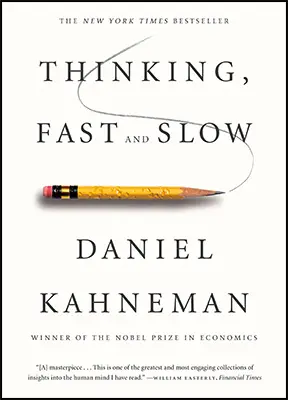
Also by Daniel Kahneman: Noise: A Flaw in Human Judgment
The Demon-Haunted World: Science as a Candle in the Dark
By Carl Sagan
In the information age, pseudoscience is burgeoning. The Demon-Haunted World argues that scientific thinking is critical not only to the pursuit of truth but to the very wellbeing of our democracy.
Casting a wide net through history and culture, Sagan examines and debunks such celebrated fallacies as witchcraft, faith healing, demons, and UFOs. And yet, disturbingly, stories of alien abduction, channelling past lives, and communal hallucinations command growing attention and respect. As Sagan demonstrates, the siren song of unreason is not just a cultural wrong-turn, but a dangerous plunge into darkness that threatens our most basic freedoms.
"Science is not only compatible with spirituality; it is a profound source of spirituality. When we recognize our place in an immensity of light years and in the passage of ages, when we grasp the intricacy, beauty, and subtlety of life, then that soaring feeling, that sense of elation and humility combined, is surely spiritual. So are our emotions in the presence of great art or music or literature, or acts of exemplary selfless courage such as those of Mohandas Gandhi or Martin Luther King, Jr. The notion that science and spirituality are somehow mutually exclusive does a disservice to both." - Carl Sagan
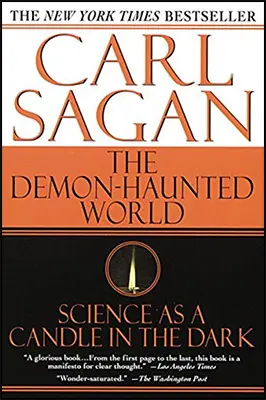
Also by Carl Sagan: Cosmos | Pale Blue Dot | The Dragons of Eden | Billions & Billions | Contact | The Varieties of Scientific Experience | Shadows of Forgotten Ancestors | Broca's Brain
My Stroke of Insight: A Brain Scientist's Personal Journey
By Jill Bolte Taylor
One day in 1996, Jill Bolte Taylor, a 37-year-old Harvard-trained brain scientist, experienced a massive stroke in the left hemisphere of her brain. Over several hours, she observed her brain deteriorating to the point that she could not walk, talk, read, write, or recall any of her life. In what often sounds like a bad psychedelic trip, Taylor recounts alternating between the euphoria of the intuitive and kinesthetic right brain, in which she felt a sense of complete wellbeing and peace, and the logical, sequential left brain, which recognized she was having a stroke and enabled her to seek help before she was completely lost.
It would take Taylor eight years to fully recover, after what turned out to be a blessing and a revelation. It taught her that by "stepping to the right" of our left brains, we can uncover feelings of wellbeing that are often sidelined by brain chatter. Having delivered a TED talk on her experience, My Stroke of Insight provides a blow-by-blow account of Taylor's bizarre experience, as well as a recovery guide for those touched by brain injury and testimony that inner peace is accessible to everyone.
"My stroke of insight would be: peace is only a thought away, and all we have to do to access it is silence the voice of our dominating left mind." - Jill Bolte Taylor
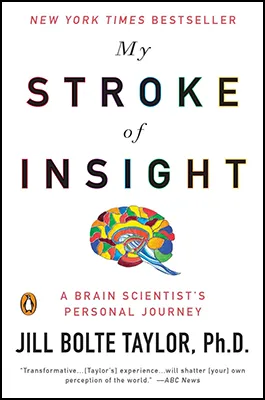
Also by Jill Bolte Taylor: Whole Brain Living
The Family That Couldn't Sleep: A Medical Mystery
By DT Max
For 200 years, a noble Venetian family has suffered from an inherited disease that strikes in middle age and steals their sleep forever, proving fatal within months. In Papua New Guinea, a primitive tribe is nearly obliterated by a sickness defined by uncontrollable laughter. In Britain, mad cows attack their owners in the milking parlors. And in the American West, thousands of deer starve to death in fields full of grass.
These distinct neurological diseases—fatal familial insomnia, kuru, mad cow, and chronic wasting disease—all share a common cause: prions. Prions are ordinary proteins that have become misshapen, forming hard plaques in the brain. They're almost impossible to destroy, yet the diseases they cause are spreading around the world.
In The Family That Couldn't Sleep, DT Max tells a spellbinding story, from the Prussian chemist who made cattle meatier by feeding them the flesh of other cows, to the New Guinean natives whose cannibalistic customs nearly wiped them out. Meanwhile, the biologists who investigated these afflictions are just as extraordinary, from Daniel Carleton Gajdusek, a self-described pedagogic pedophiliac pediatrician who cracked kuru and won the Nobel Prize, to Stanley Prusiner, the driven and feared self-promoter and Nobel prize winner who revolutionized prion study.
"Protein, so far as we know, does not replicate itself all by itself, not on this planet anyway. Looked at this way, the prion seems the strangest thing in all biology, and, until someone in some laboratory figures out what it is, a candidate for Modern Wonder." - DT Max
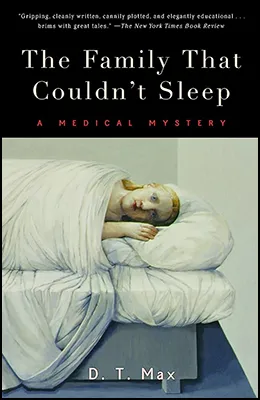
Also by DT Max: Every Love Story is a Ghost Story | Finale
